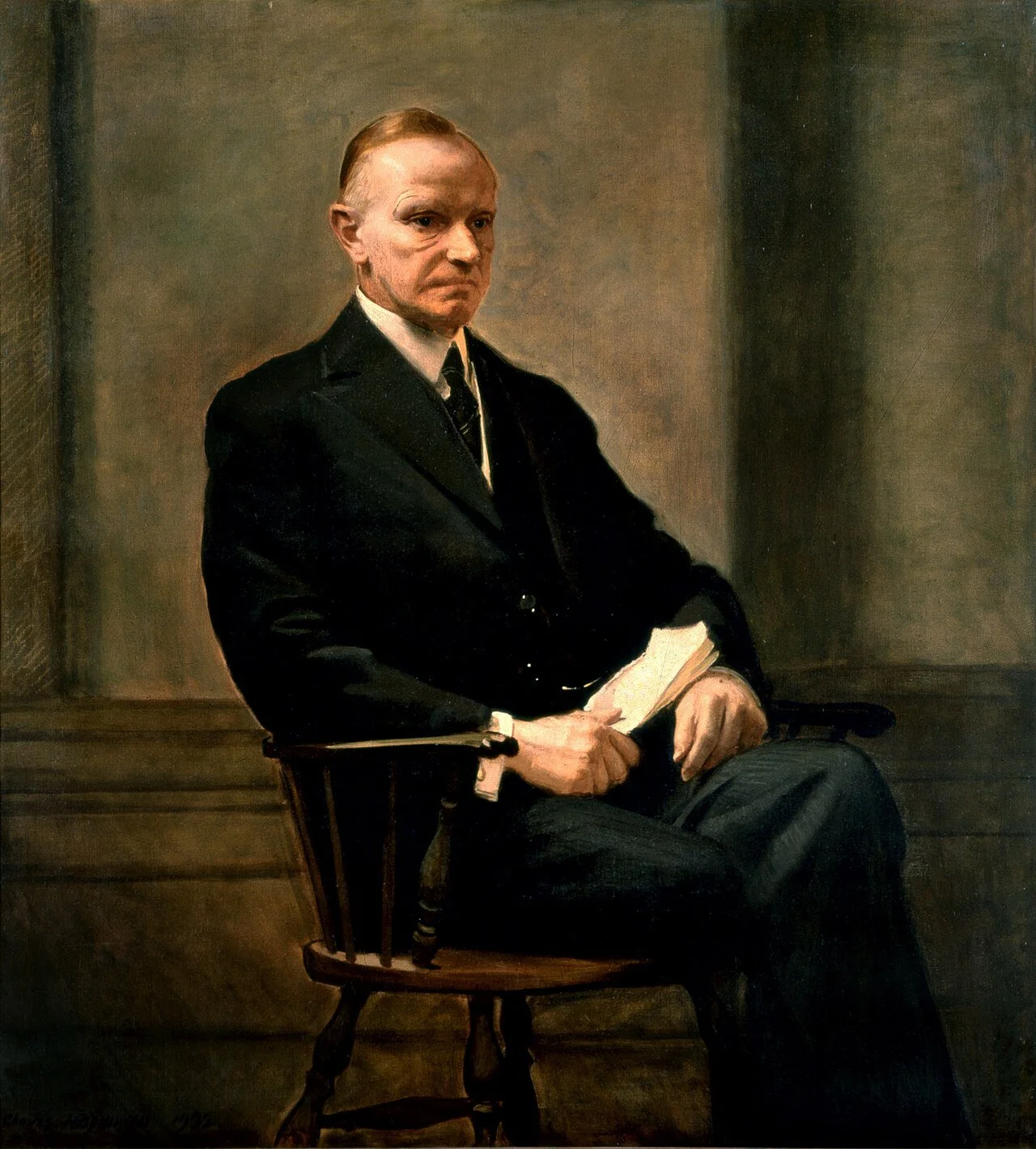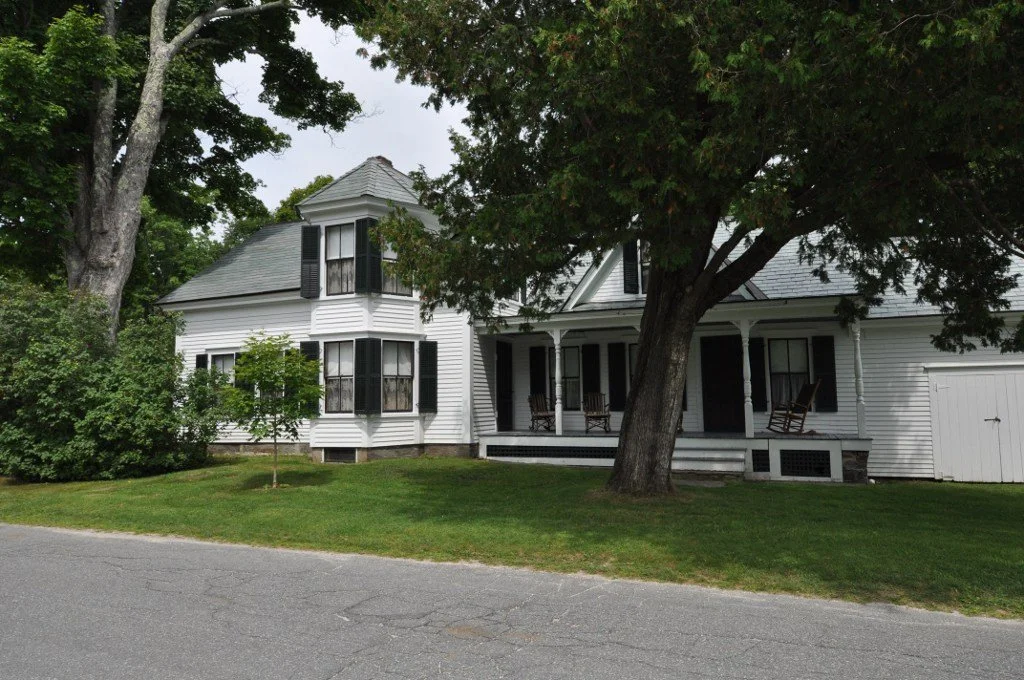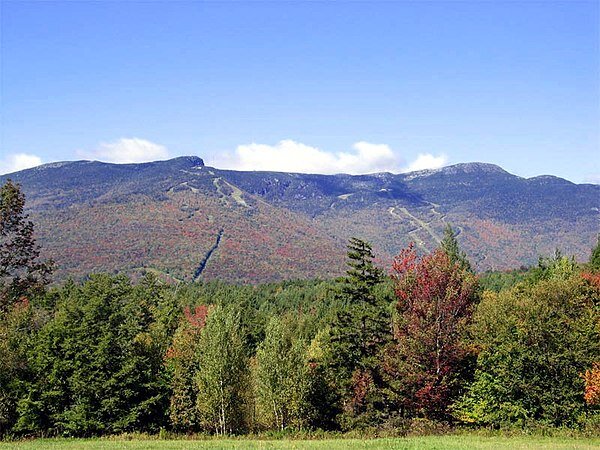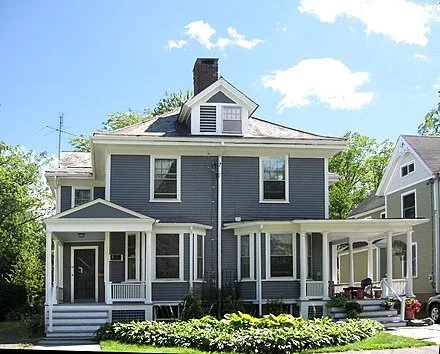
‘Brave little state’
Official presidential portrait of Calvin Coolidge
The Coolidge Homestead, in Plymouth Notch, Vt. It’s now a museum.
— Photo by Magicpiano
The ‘‘Brave Little State of Vermont’’’ speech is a name given to remarks delivered by Vermont native and President Calvin Coolidge at Bennington on Sept. 21, 1928.
Coolidge was touring his home state by train to assess progress of recovery following the devastating 1927 flood. Considered taciturn and nicknamed "Silent Cal," Coolidge demonstrated unusual emotion in delivering his extemporaneous response to the human suffering and loss he had witnessed.
Text of Coolidge's remarks follow:
My fellow Vermonters:
For two days we have been traveling through this state. We have been up the East side, across and down the West side. We have seen Brattleboro, Bellows Falls, Windsor, White River Junction and Bethel. We have looked toward Montpelier. We have visited Burlington and Middlebury. Returning we have seen Rutland.
I have had an opportunity of visiting again the scenes of my childhood. I want to express to you, and through the press to the other cities of Vermont, my sincere appreciation for the general hospitality bestowed upon me and my associates on the occasion of this journey.
It is gratifying to note the splendid recovery from the great catastrophe which overtook the state nearly a year ago. Transportation has been restored. The railroads are in a better condition than before. The highways are open to traffic for those who wish to travel by automobile.
Vermont is a state I love. I could not look upon the peaks of Ascutney, Killington, Mansfield, and Equinox, without being moved in a way that no other scene could move me. It was here that I first saw the light of day; here I received my bride, here my dead lie pillowed on the loving breast of our everlasting hills.
I love Vermont because of her hills and valleys, her scenery and invigorating climate, but most of all because of her indomitable people. They are a race of pioneers who have almost beggared themselves to serve others. If the spirit of liberty should vanish in other parts of the Union, and support of our institutions should languish, it could all be replenished from the generous store held by the people of this brave little state of Vermont.
Where the (laconic) grandeur began
President Calvin Coolidge’s birthplace in bucolic Plymouth Notch, Vt.
“Calvin Coolidge (1872-1933) was the greatest man who ever came out of Plymouth Corner {actually Plymouth Notch} Vermont.’’
— Quote attributed to Clarence Darrow
'This brave little state'
Mt. Mansfield
“I have had an opportunity of visiting again the scenes of my childhood. I want to express to you, and through the press to the other cities of Vermont, my sincere appreciation for the general hospitality bestowed upon me and my associates on the occasion of this journey.
“It is gratifying to note the splendid recovery from the great catastrophe which overtook the state nearly a year ago. Transportation has been restored. The railroads are in a better condition than before. The highways are open to traffic for those who wish to travel by automobile.
” Vermont is a state I love. I could not look upon the peaks of Ascutney, Killington, Mansfield and Equinox, without being moved in a way that no other scene could move me. It was here that I first saw the light of day; here I received my bride, here my dead lie pillowed on the loving breast of our everlasting hills.
“I love Vermont because of her hills and valleys, her scenery and invigorating climate, but most of all because of her indomitable people. They are a race of pioneers who have almost beggared themselves to serve others. If the spirit of liberty should vanish in other parts of the Union, and support of our institutions should languish, it could all be replenished from the generous store held by the people of this brave little state of Vermont.’’
President Calvin Coolidge’s speech at Bennington, Vt., on Sept. 21, 1928. Coolidge (1872-1933) was touring his home state by train to assess progress of recovery following a disastrous flood in 1927. Considered taciturn and nicknamed "Silent Cal," Coolidge demonstrated unusual emotion in delivering his response to the suffering and loss he had witnessed.
Coolidge's 'law of service'
Coolidge’s home in Northampton, Mass., from 1906-1930
Calvin Coolidge (1972-1933; president 1923-1929) states his philosophy;
‘T]here is a standard of righteousness that might does not make right, that the end does not justify the means, and that expediency as a working principle is bound to fail. The only hope of perfecting human relationships is in accordance with the law of service under which men are not so solicitous about what they shall get as they are about what they shall give. Yet people are entitled to the rewards of their industry. What they earn is theirs, no matter how small or how great. But the possession of property carries the obligation to use it in a larger service.…’’
The Coolidge family homestead, in Plymouth Notch, Vt.
'Belong to themselves'
The Coolidge Homestead in Plymouth Notch, Vt., where the future Massachusetts governor and U.S. vice president and president was born in 1872
“Vermont is my birthright. People there are happy and content. They belong to themselves, live within their income, and fear no man.’’
— Calvin Coolidge, 1920
An American enigma
Calvin Coolidge.
Coolidge: An American Enigma, by the late Robert Sobel, published by Regnery, is a very well written look at the life of the Vermont-born Massachusetts lawyer and politician who became our 30th president. I found the stuff about “Silent Cal’s’’ early life particularly engaging. Sobel calls Coolidge our last “Jeffersonian’’ (limited government) president.
A man of integrity and reserve, Coolidge rather incongruously presided over “The Roaring Twenties’’. The well educated and smart Coolidge was, of course, a far more complicated character than many people thought when he was president. He was also a good writer, and sometimes showed flashes of sentiment/emotion in speeches and letters that he usually kept hidden from the public. And he wrote almost all of his own speeches – the last president to do so.
Coolidge would have agreed with this quote from James Madison:
“The infirmities most besetting popular governments…are found in defective laws, which do mischief before they can be mended, and laws passed under transient impulses, of which time and reflection call for a change.’’
The Coolidge Homestead, now a museum, in Plymouth Notch, Vt.
Vermonters 'live within their income' (or used to)
Union Christian Church (1840) in Plymouth, Vt., the town where Calvin Coolidge, the 30th president, was born on July 4, 1872.
"Vermont is my birthright. People there are happy and content. They belong to themselves, live within their income, and fear no man.''
-- Calvin Coolidge
Chris Powell: A desperate America needs you to sign a petition for a big new political party.
MANCHESTER, Conn.
How has this happened? How have the two major political parties contrived to give their presidential nominations to candidates who, according to opinion polls, are both heartily disapproved by a majority of voters generally even as they command majority support in their own parties?
Must the next president be a megalomaniac and serially bankrupt buffoon leading a pack of hateful brownshirts, or a clumsily pandering, posturing grifter leading a pack of parasites?
No presidential election in modern times has offered as much opportunity for a third-party challenge. John Anderson took almost 7 percent of the vote in 1980 and Ross Perot almost 20 percent of the vote in 1992 against candidates whom the public did not find half as repulsive as Donald Trump and Hillary Clinton.
Is there no one in public life in this country whose approval rating exceeds his or her disapproval rating — no one who, while perhaps little known at the moment, might earn the country’s respect rather than its contempt in a few months?
Of course since elections are usually exercises in building consensus, campaigns can be a slog toward mediocrity. Disappointed with the result of the 1924 presidential election, the social critic H.L. Mencken renounced democracy itself.
“Democracy,” Mencken wrote, “is that system of government under which the people, having 35,717,342 native-born adult white men to choose from, including many who are handsome and thousands who are wise, pick out a Coolidge to be head of the state. It is as if a hungry man, set before a banquet prepared by master cooks and covering a table an acre in area, should turn his back upon the feast and stay his stomach by catching and eating flies.”
And Coolidge didn’t turn out so badly, as Mencken had to admit when he wrote the former president’s obituary in 1933: “He had no ideas and he was not a nuisance.”
But Donald Trump in charge of the nuclear arsenal? Hillary Clinton —futures trader extraordinaire, tool of Goldman Sachs, destroyer of universal medical insurance, dissembler of Benghazi, compromiser of classified documents — in charge of anything?
Now will someone please start circulating the petitions?
Chris Powell is managing editor of the Journal Inquirer, in Manchester, Conn.
James P. Freeman: Charlie Baker restores good government to Mass.
“The Baker-Polito Administration Year in Review – 2016,” released nearly a year after Massachusetts Gov. Charles (but almost always called Charlie) Baker assumed the corner office is, in many respects, a blistering indictment of Deval Patrick’s eight years as governor.
It begins a section entitled “Fixes and Reforms,” which lists as goals and objectives: “fixing a broken transportation system,” “reforming a broken Department of Children and Families,” “fixing the RMV,” “fixing a broken Health Connector,” and “fixing a broken Medical Marijuana dispensary system.” In short, the document lays out the charges of years of progressive malfeasance in Massachusetts.
In a wide ranging telephone interview, Baker sounded calm and confident about the noble work his team is diligently implementing to restore and repair a dysfunctional state government.
Asked if he would characterize one of the themes of his administration as “restoration,” Baker pondered for a moment, and responded, simply: “That is a perfectly fine word” to describe it.
Baker said the biggest disappointment of his first year was not addressing the problems at the Massachusetts Bay Transportation Authority “earlier.” The contrasts between Patrick and Baker, in style and substance, are evident. Patrick embodied the incurable progressive urge: if you can’t fix it, expand it. Instead of simply fixing the “T” he sought its expansion, with a billion-dollar transportation “network.” Patrick was a dreamer. Baker is a reformer.
Baker’s approach is not sleight of hand or sledgehammer, rather, it is realistic assessment. When asked the biggest hurdle the Commonwealth faces, his answer is surprising: “energy.”
Despite the comfort of low natural-gas prices and the false sense of security it brings, the Commonwealth is due to lose 10,000 megawatts of power off the grid in the next four to five years. Residents already pay the second highest energy rates in the country. Unless it is addressed soon, Baker fears brownouts and blackouts are possible. He believes Canadian hydropower is the best alternative and “I hope there is a big debate in 2016” with the legislature about obtaining the approvals to move forward. Securing energy, like good government, is overly complicated today.
With regard to building a better economy, Baker eschews the grandiosity of the previous administration’s billion-dollar grab bags (see Life Sciences Initiative). His programs resemble economic, in which smaller, more manageable initiatives come into sharper focus from a distance, where a comprehensive image emerges. He seeks to “simplify” and “modernize” local and state government and reduce its complexity. He is also intent on seeing that western Massachusetts take part in Boston’s booming economy by developing what he calls “skill building.”
A few weeks ago, the governor held a private screening of the shattering HBO documentary Heroin: Cape Cod, USA. It is an antiseptic look at a group of young people who have succumb to the grip of opiate addiction and shreds the idyllic image of Patti Page’s “Old Cape Cod.” He told invited guests that while the film takes place in Massachusetts it “could be anyplace in America.” Every day four people die in the Commonwealth of opioid overdose. It would not be surprising if he looks to reforming how prescriptions for opioid pain medications are written, with such medications being drivers of unintended addictions.
Baker may in fact be the rightful heir to another quiet, serene and unassuming leader of the Commonwealth from nearly a century ago, Gov. Calvin Coolidge. They share the same sentiments and sensibilities about what government does and how it should do it, its vices and virtues.
Coolidge wrote long ago, but with particular relevance today, “There is no dignity quite so impressive, and no one independence quite so important, as living in your means.”
Given the level of massive liabilities — unfunded pensions, perennial out-of-balance budgets, public debt obligations – that approach $130 billion (or $19,493 per capita), Massachusetts has been living beyond its means for decades. These matters will surely need attention too.
The process of restoration is untidy and, in many respects, the major political battles have yet begun but are looming. One wonders if Baker will proactively flush out unpopular and even painful measures early in a first term or slowly unravel the carnival of carnage as it continues coming his way. Either way is fraught with political risks for a man enjoying 70 percent approval ratings today.
After a long lineage of progressive posturing and grisly governance, however, an exhausted and bloodied Commonwealth should continue to enthusiastically accept Baker’s brand of competence, caution and sensible government.
James P. Freeman is a New England-based writer and a former Cape Cod Times columnist. This piece originated at The New Boston Post.














